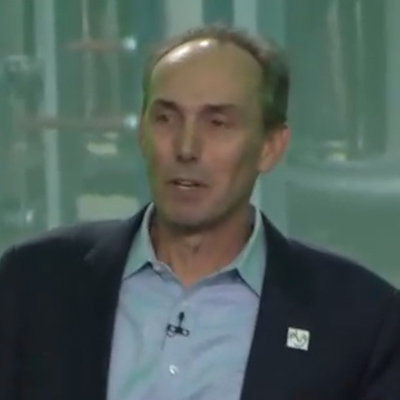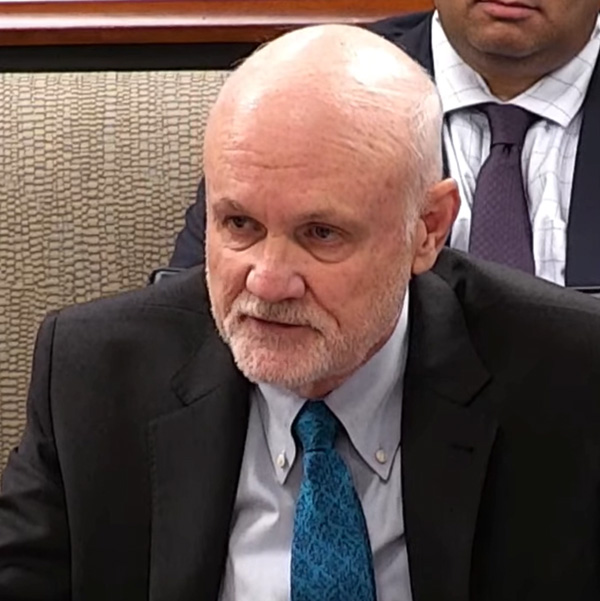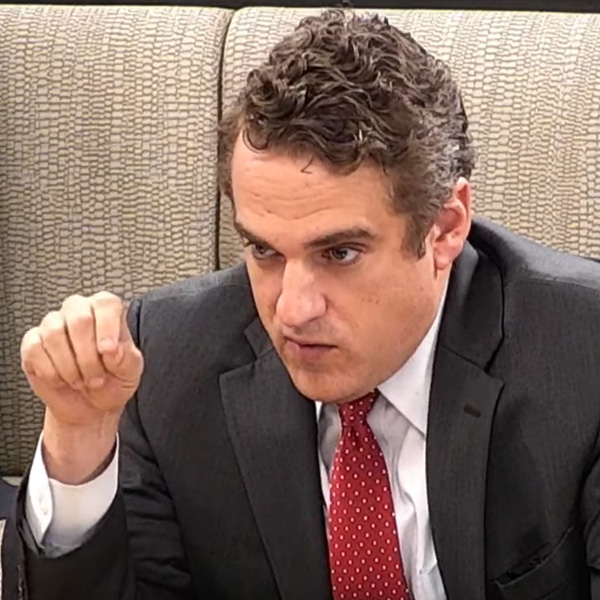INDIANAPOLIS — PJM Independent Market Monitor Joe Bowring last week criticized inquiries into the budget of his firm, Monitoring Analytics, and the scope of its contract with the RTO, saying they threaten the IMM’s independence.
Bowring told the Organization of PJM States Inc.’s (OPSI) Market Monitoring Advisory Committee, meeting as part of OPSI’s Annual Meeting event on Oct. 18, that stakeholders have recently questioned the RTO’s Finance and Liaison committees about his firm.
“Some of the sectors have been using the Finance Committee as a point of attack against the Market Monitor, and we think it’s a precursor of what we can expect over the next three years; our contract is up in three years,” Bowring said. “A number of the sectors were not happy when our contract was renewed the last time around, and we are experiencing this as the beginning of the next round of attacks on the Market Monitor and our existence, let alone our independence.”
Alex Stern, director of RTO strategy for Public Service Electric and Gas, responded that stakeholders involved in the budget approval process were seeking answers about the cost of Monitoring Analytics’ services and why its expenditures historically have been millions below its budget.
“There were concerns expressed that members are paying substantially more for the services of Monitoring Analytics than other regions that are similarly situated, and there were concerns that there are escalations in the budget year over year despite actuals consistently coming in much lower,” Stern said.
Bowring said unspent money in the Monitor’s budget is subtracted from its allocation in the subsequent year’s budget, preventing it from profiting from excess funds. He noted that Monitor Analytics is seeking a $500,000 budget increase from approximately $14.6 million this fiscal year to $15.1 million next year, of which they expect to spend $13.5 million.
“If our budget is $13 million and we spend $11 [million], we don’t get to keep the other $2 [million]; it simply falls forward into the next year and reduces the next year’s budget by that amount. So it’s a zero-profit, cost-based operation,” he said.
Jason Barker of Constellation Energy said his company supports a strong and independent Monitor, but it has misgivings regarding its scope and whether Monitoring Analytics may be exceeding it. When asked to elaborate by committee members, he said some of the issues were confidential and questioned whether the body would have the authority to act on complaints brought before it.
“The central question is, who oversees the market monitoring activities? Is it this committee? Is it the board? What powers would this committee have, and how would they exercise them if matters are brought before you?” he said.
Jackie Roberts, federal policy adviser for the West Virginia Public Service Commission, said it frustrates the states’ attempts to act upon concerns regarding the IMM and report them to FERC when they’re made in forums they cannot participate in, such as the PJM Liaison Committee, rather than before the OPSI Advisory Committee.
“We hear a lot about what Joe’s doing at these meetings, but what we don’t hear are criticisms that occur at the Liaison Committee and where Joe [Bowring] can’t hear the criticisms and the states can’t hear the criticisms,” Roberts said. “It’s very hard to report to FERC about the Market Monitor through this committee as we are obligated to do without knowing what those comments are, and the Liaison Committee is not charged with reporting to FERC about the Market Monitor.”
She called for PJM to limit discussion of IMM performance and direct that to the Advisory Committee or open the Liaison Committee to state participation.
Marji Philips of LS Power said there have also been concerns regarding Bowring’s influence on stakeholder discussions, which she said can sometimes tamp down on negotiations.
Maryland Public Service Commissioner Michael Richard said he believes a broad scope for the Monitor is important for states to gain confidence that PJM’s markets are functional by providing more oversight and involvement than their individual offices can.
“We believe that he has a very broad mandate and he is in the position of what he deems important to ensure competitive markets,” he said.
Competition is Key
Bowring praised the performance of the RTO’s competitive markets and outlined several potential improvements and future challenges during the meeting last week.
“We need collectively to make the markets work. Competitive markets have worked; they continue to work; and it just requires everyone to buckle down and think about that being the focus and not accepting some of these counter narratives which suggest that somehow markets are fundamentally broken,” Bowring said.
Many of the areas Bowring expressed concerns about have to do with what he believes are instances where parties try to sway the competitive aspects of the markets.
Bowring said that renewable resources, for examples, should compete in a single capacity market, alongside other generators. That would increase the capacity market price for thermal generators and provide a strong incentive for intermittent resources to hybridize to make themselves more reliable and able to compete.
Markets do, however, need clear rules around their functioning, Bowring said, and it’s important that those rules remain focused on using the principles of competition toward their solution.
“You can’t solve every possible problem we foresee coming for the next 20 years; we have to solve the problems in front of us, thinking about the future. We have to remain technology neutral and not have our thumb on the scale in any particular direction. We also don’t need artificial price increases to solve what we may perceive to be problems. We’ve gone through cycles of PJM and others thinking that we need to raise prices and saying prices are too low. As long as we have the market rules right, prices are not too high or too low, they are what they are and people have to deal with the outcomes of that,” Bowring said.
[CORRECTION: An earlier version of this article mistakenly attributed a quote by Jackie Roberts to Marji Phillips.]




